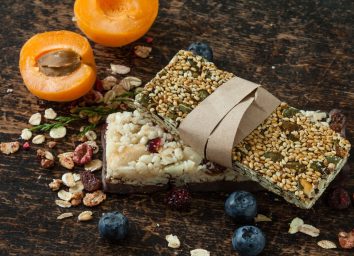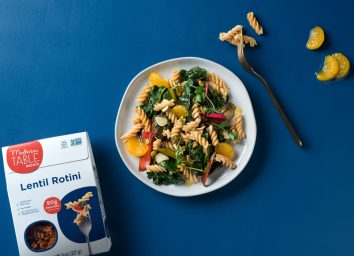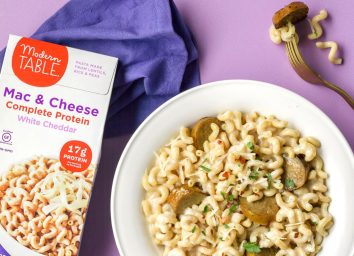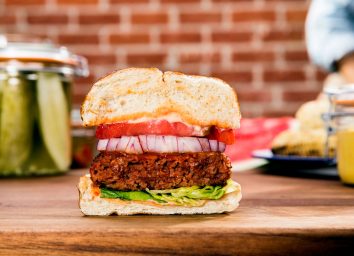11 Health Benefits of Plant Protein
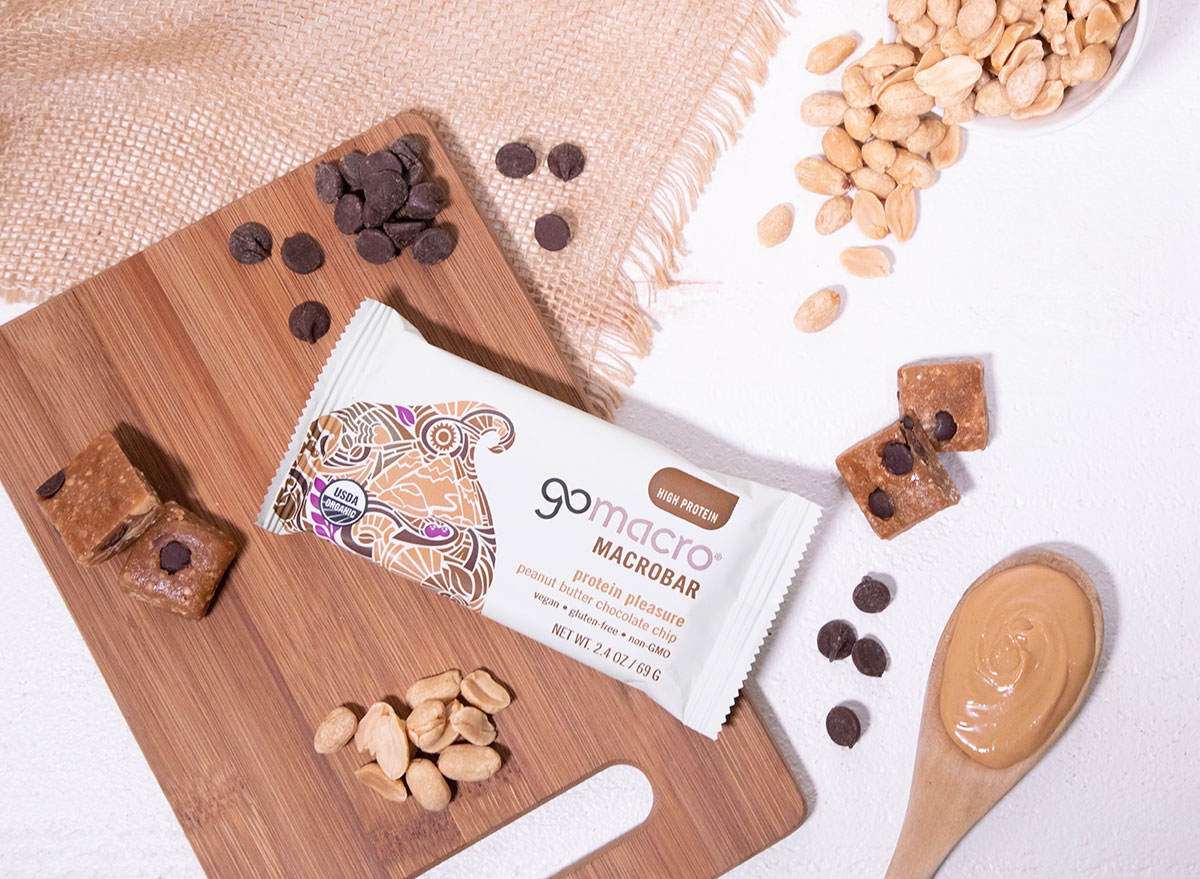
A quick scroll through Instagram proves most protein and gym junkies think the best way to score epic #gains is by eating a diet filled with meat. And lots of it. Sure, eating a chicken breast is a quick way to meet your daily protein needs, but is it the best way? Not according to science.
Through some research, it's easy to see animal protein isn't the optimal source you should be filling your plate with. Plant protein, like that used by GoMacro in their bars, is lower in heart-harming saturated fat, easier to digest, and free of antibiotics and harmful bacteria. It also keeps your body healthy, strong, and youthful for years to come by helping you fight off disease and keeping your immune system strong.
If you've been thinking about making the switch, these evidence-backed reasons to load up on plants will make the decision to ditch animal protein a no-brainer.
The Health Benefits of Plant Protein
Sprouted plant protein is easily absorbed by the body.
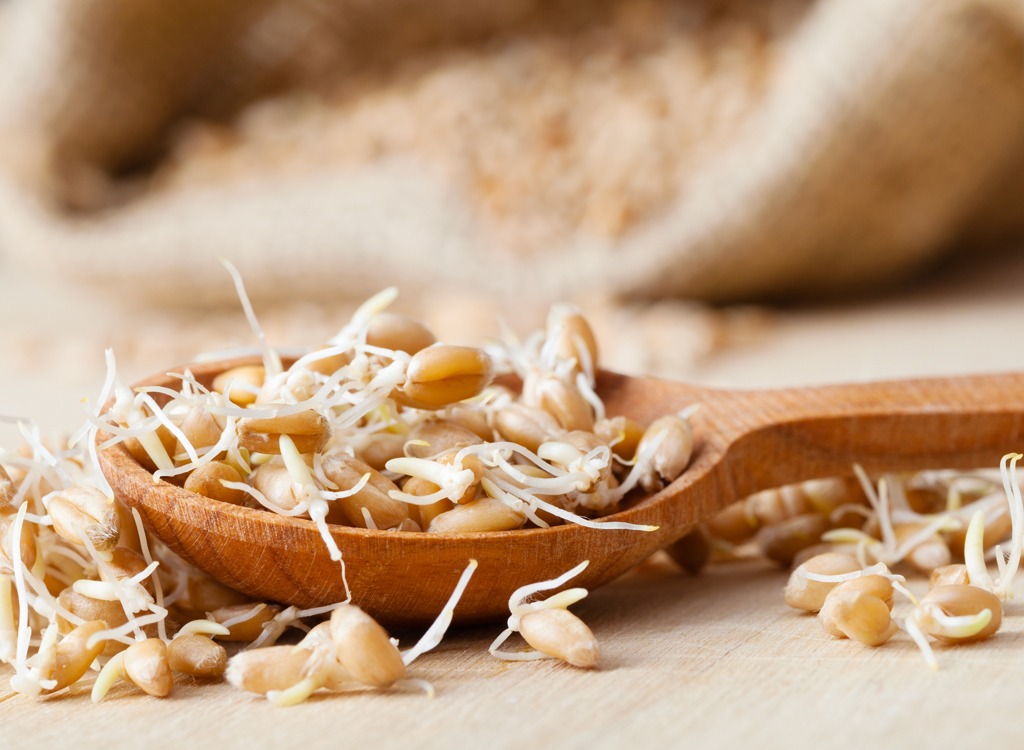
There's a simple solution to getting the most out of your plant protein: sprouting it. According to Maggie Berghoff, MSN, FNP, when you do so prior to eating—whether it's grains, nuts, beans, or seeds—the process makes it easier for your body to digest and absorb. "This is especially important if you have difficulties with digestion, such as a food intolerance, slow metabolism, bloating, or constipation. We want to make the food as easy as possible for the body to identify, break down, and use as fuel," she says. GoMacro opts for sprouted brown rice protein for this reason. The protein is more bioavailable, so the body can utilize it better to repair muscle tissue when you eat a bar after a hard workout.
Pea protein is a great source of iron.
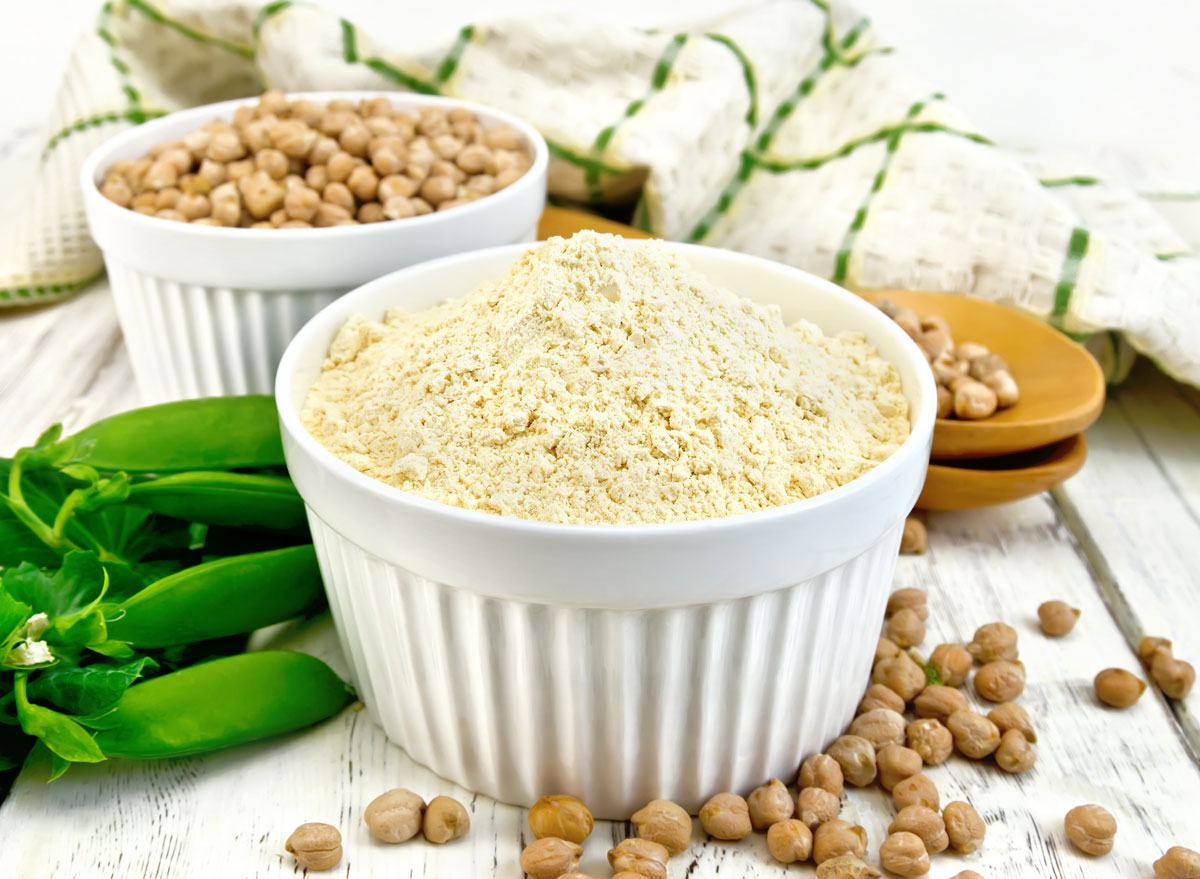
Red meat is currently the top source of iron in the American diet, but pea protein is an easy way for vegans and vegetarians to get their fix. One serving of pea protein powder contains 35 percent of your DV of iron. For comparison, the same serving size of animal-based whey protein contains 0 percent of your iron DV. So not only are you getting a large portion of your daily iron needs out of the way, but you're also getting plenty of protein. You'll find pea protein powder in nine of GoMacro's protein bars, including Cashew Caramel, Blueberry + Cashew Butter, and Peanut Butter Chocolate Chip.
Nut protein is loaded with healthy fats.
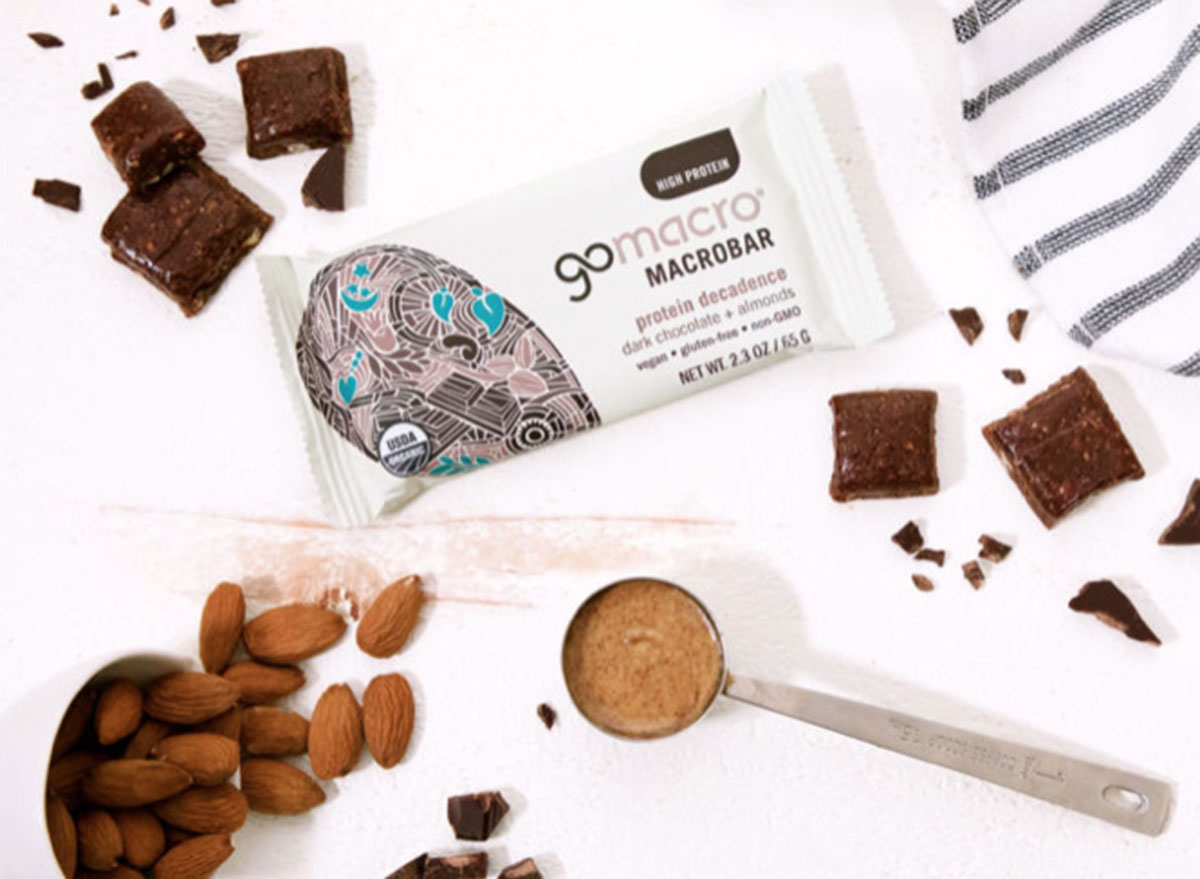
When it comes to getting your daily intake of healthy fats, doing so through nut butter couldn't be easier… or more delicious. "Nut butters are not only a super convenient way to add healthy fats to your diet—which balance hormones, control sugar levels, and maintain proper appetite—but they're also easily digested by the body since they're already broken down into a creamy substance that's easy to absorb," Berghoff says. In GoMacro's bars, nut butter is a staple: You can find options loaded with peanut butter, almond butter, cashew butter, and sunflower butter (via their Sunflower Butter + Chocolate bar) for those who are nut-free.
Whole food plant protein keeps you fuller longer.
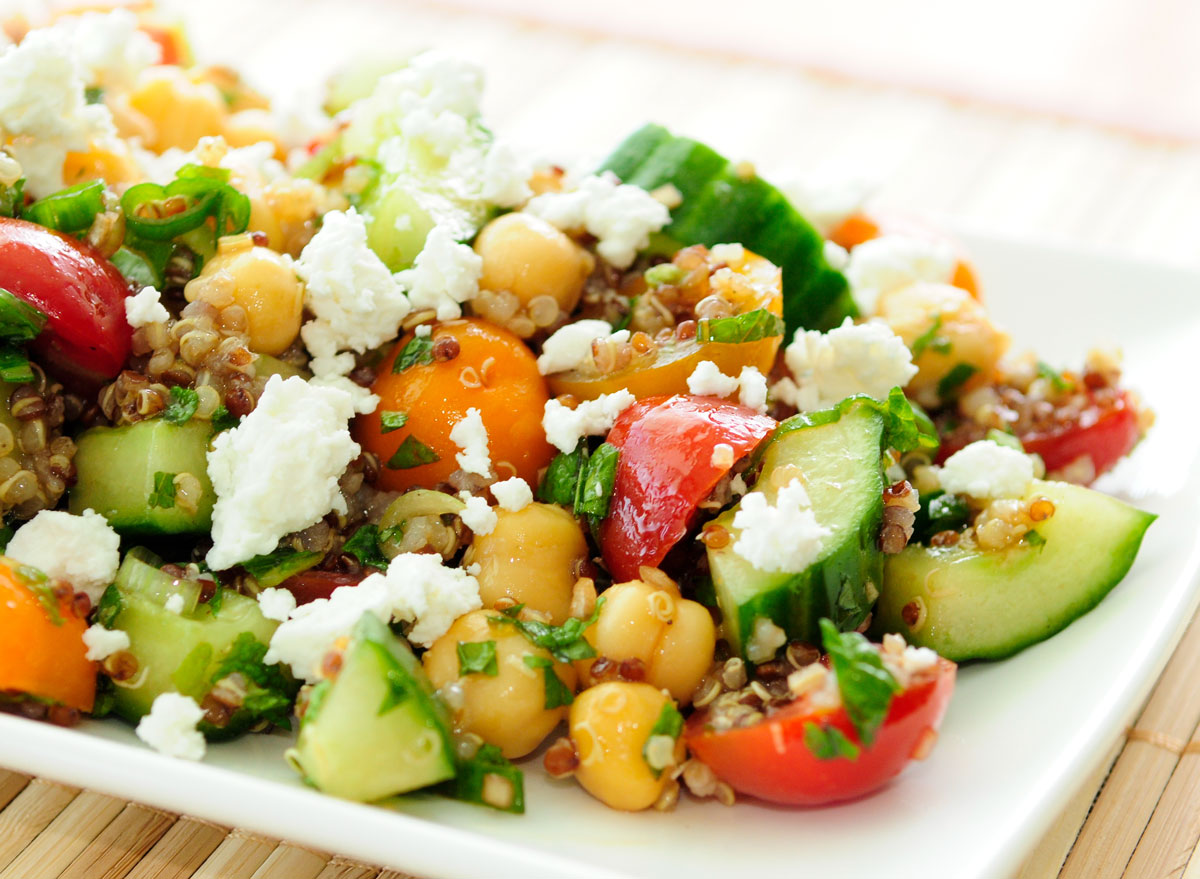
Ever notice how you get hungry pretty quickly after eating animal protein but stay full for hours after eating plant protein? You're not going crazy—it's a thing. Sources of plant protein—like legumes and beans—come with an added bonus that helps you stay satisfied until your next meal. In fact, a Food & Nutrition study discovered that when young men consumed a protein-rich meal composed of legumes, they consumed 12 percent fewer calories in their next meal than if they had eaten a meat-based meal. Experts believe the edge plants have over animals is their fiber content: "Whole food plant proteins will keep you fuller longer than animal protein due to the fiber naturally found in these items," Berghoff says. "Fiber curbs cravings, boosts digestive health, and controls your appetite."
Plant-based protein helps keep your gut healthy.

Research published in the journal Nutrients has shown those who eat a plant-based diet have a unique gut profile that contains less disease-causing organisms and more protective species that help keep your inflammation levels low. "Adding more plants into your diet is highly beneficial for creating great gut microbiome diversity," Berghoff says. When you keep your microbiome in check, you see improvements to your health overall and well-being, as poor gut health has been linked to fatigue, anxiety, depression, skin issues, autoimmune diseases, and more.
Plant-based protein can help you feel and look younger.
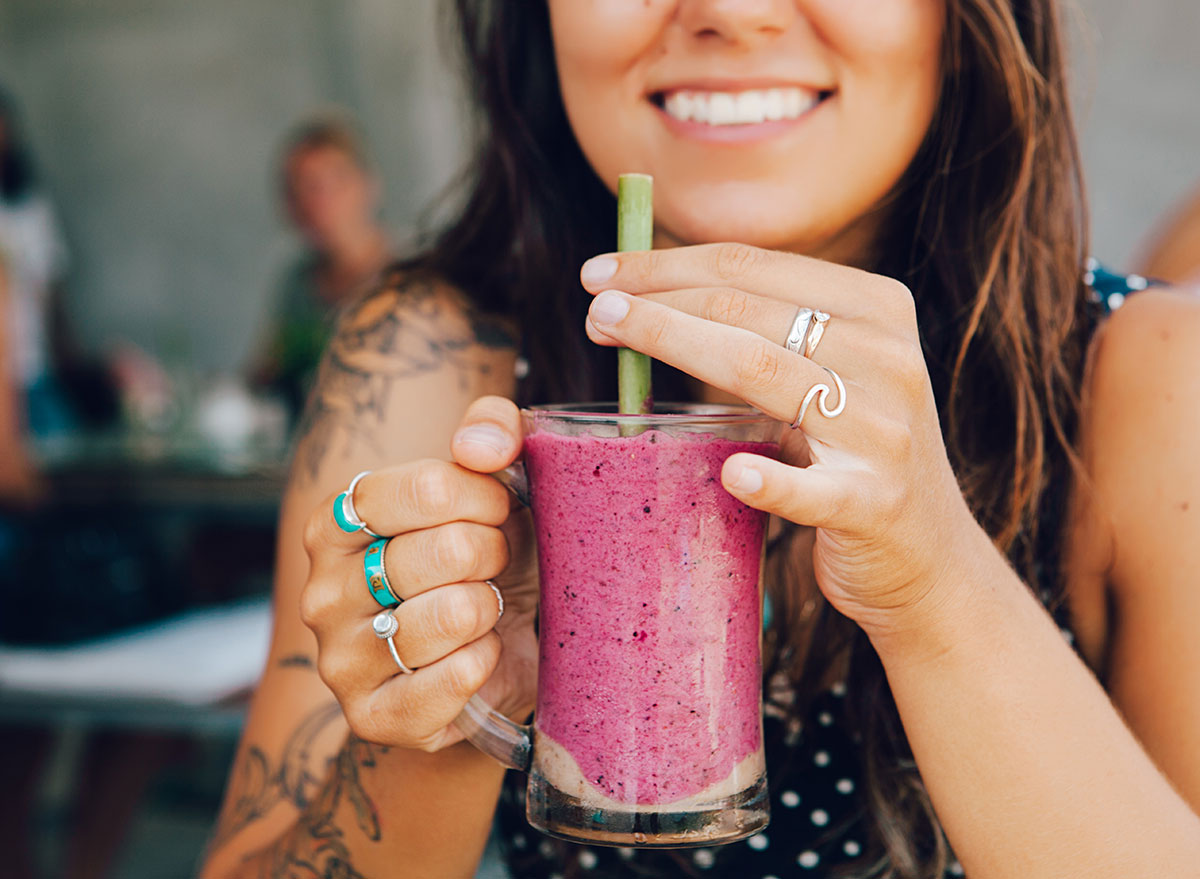
If you want help feeling like you're in your twenties when you're well into your sixties, adopt a diet that's filled with more plant protein than animal protein. "A plant-based diet can help prevent disease, nagging symptoms, and even aging," Berghoff says. When you're filling your body with wholesome protein choices, it helps you stay younger for longer—something shown by those living in Blue Zones. It also helps you look younger. In one PLOS One study, in particular, researchers found healthy, glowing skin was linked to higher intakes of plant foods.
Plant-based protein can help you live longer.

Not only does eating plant protein help you feel and appear more youthful, but it also helps you make it to your 100th birthday. "Plant protein is essential in living a long, strong, healthy life," Berghoff says. A 2016 study published in JAMA Internal Medicine found those who got their protein from beans, nuts, and grains had a lower mortality rate than those who ate high amounts of animal protein.
Plant-based protein can help fight off disease.

One prime reason why eating plant protein can help you live longer than animal protein is because of how it helps you fight off disease. "Due to the highly nutritious value of these plants and the fiber that cleanses the body and keeps the gut healthy, it can decrease your risk of cardiovascular disease and cancer," Berghoff says. A recent study published in the journal Circulation further proved that by finding those who replace red meat with healthy plant protein can lower their risk of heart disease.
Plant-based protein can improve your athletic performance.

When most people look at athletes, they assume they're eating an endless supply of animal protein to get those big, toned muscles. But so many individuals are adopting a plant-based diet instead, and because of that, they're playing better than ever. While Tom Brady has been a fan of plant protein for years, other NFL players decided to jump on board, too—many of whom have not only seen improvements in their athletic performance, but also in their energy levels, and recovery times.
Plant-based protein can help with weight-loss.

There's a reason why so many people lose weight after upping the amount of plant protein in their diet. A study published in the Journal of General Medicine found those who stuck to a vegan diet lost five more pounds than other diet plans, proving to be the best diet for weight loss. Aside from the perks of eating healthier overall, fiber-packed, plant-based protein also helps you stay full and satisfied for longer periods of time—aka not running to the vending machine between meals.
Plant-based protein helps to reduce consumption of harmful bacteria.
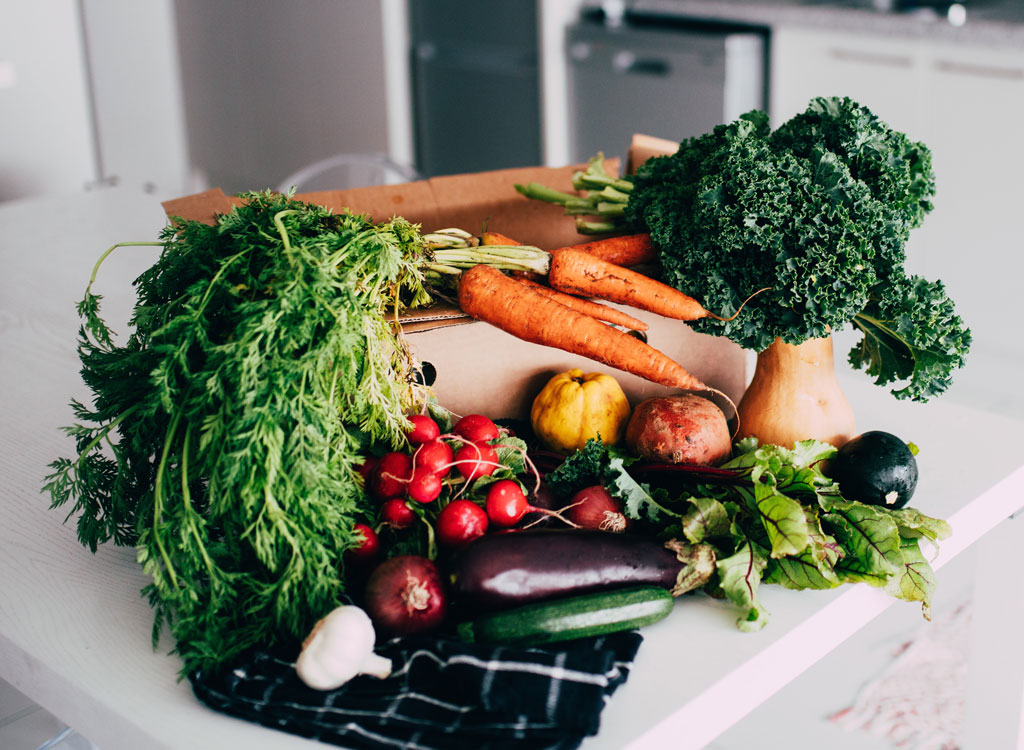
Having animal protein in your diet means you're most likely consuming a lot of things you would rather not have in your body. "Many people who eat a lot of animal protein aren't getting quality choices. Because of that, the meat they're consuming is toxic with added antibiotics and hormones that then are absorbed by our bodies when we eat them," Berghoff says. Aside from the negative effects of taking in all those antibiotics, eating animal protein can also introduce you to harmful strains of bacteria that can cause you to become ill, including salmonella.
Easy Ways to Reap More Benefits of Plant Protein
Now you know exactly how beneficial it is to add plant protein to your diet. So how do you actually go about it? It's incredibly easy, and these are some of the best ways to do it.
Grab a protein bar.
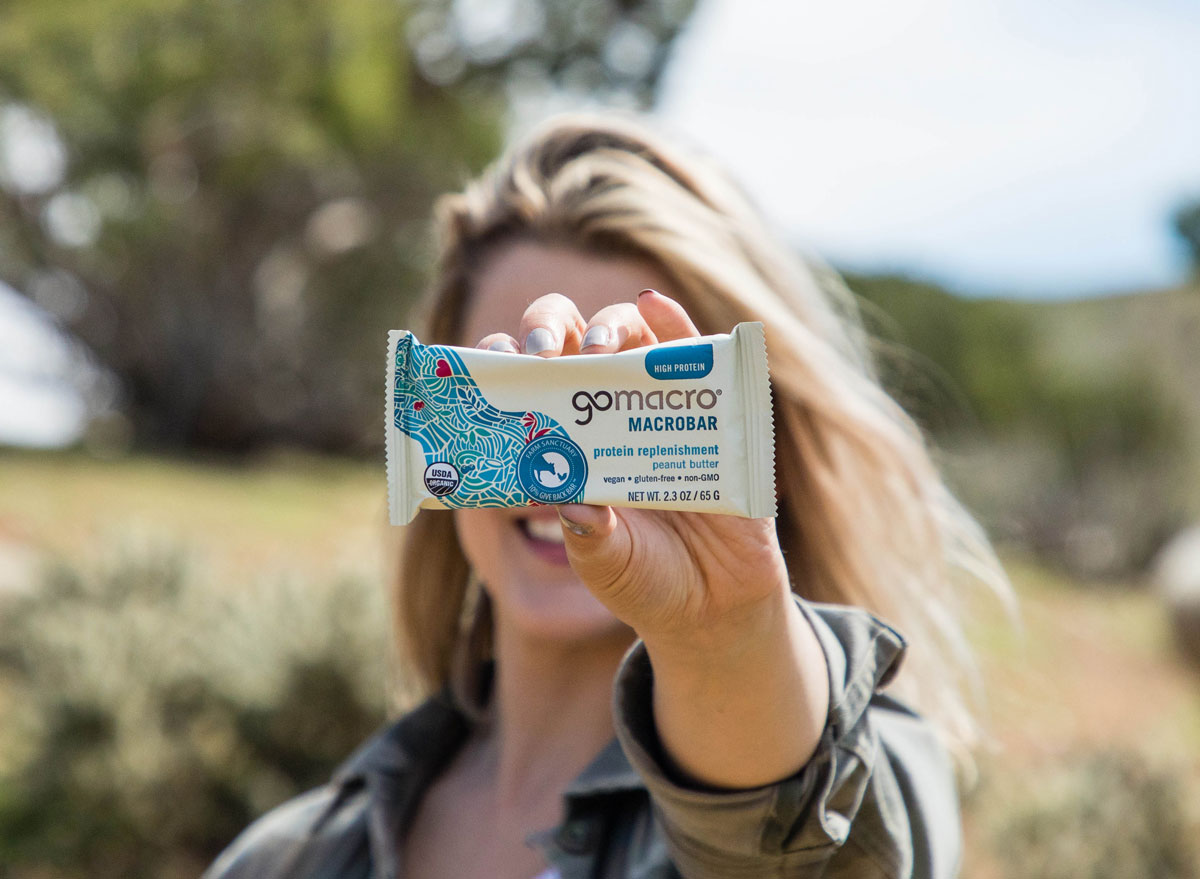
When you want to keep things extra simple, grab a plant-based protein bar. GoMacro has plenty of conveniently-packaged options that will help you hit your daily needs. The Mocha Chocolate Chip bar and the Dark Chocolate + Almonds bar, for example, both contain 10 grams of plant-based protein. After eating one up, you'll have gotten 20 percent of your DV.
Use tasty sauces.
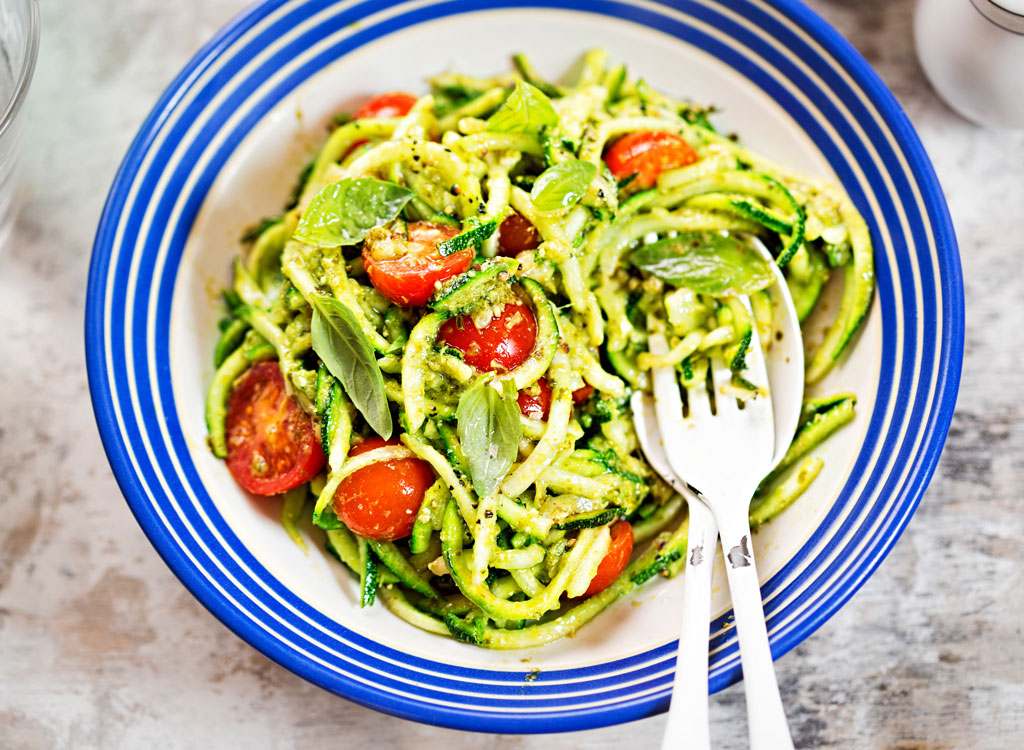
One way to amp up your intake of plant protein is to utilize fun and healthy sauces to make the veggies more appealing. "You can make veggie-centric meals extra delicious by topping them with healthy marinara sauces or homemade dressings," Natalia Rose, CN says. Maybe one night that's chickpea bolognese, and another it's a bean and tofu salad with a creamy miso dressing.
Blend it up in smoothies.
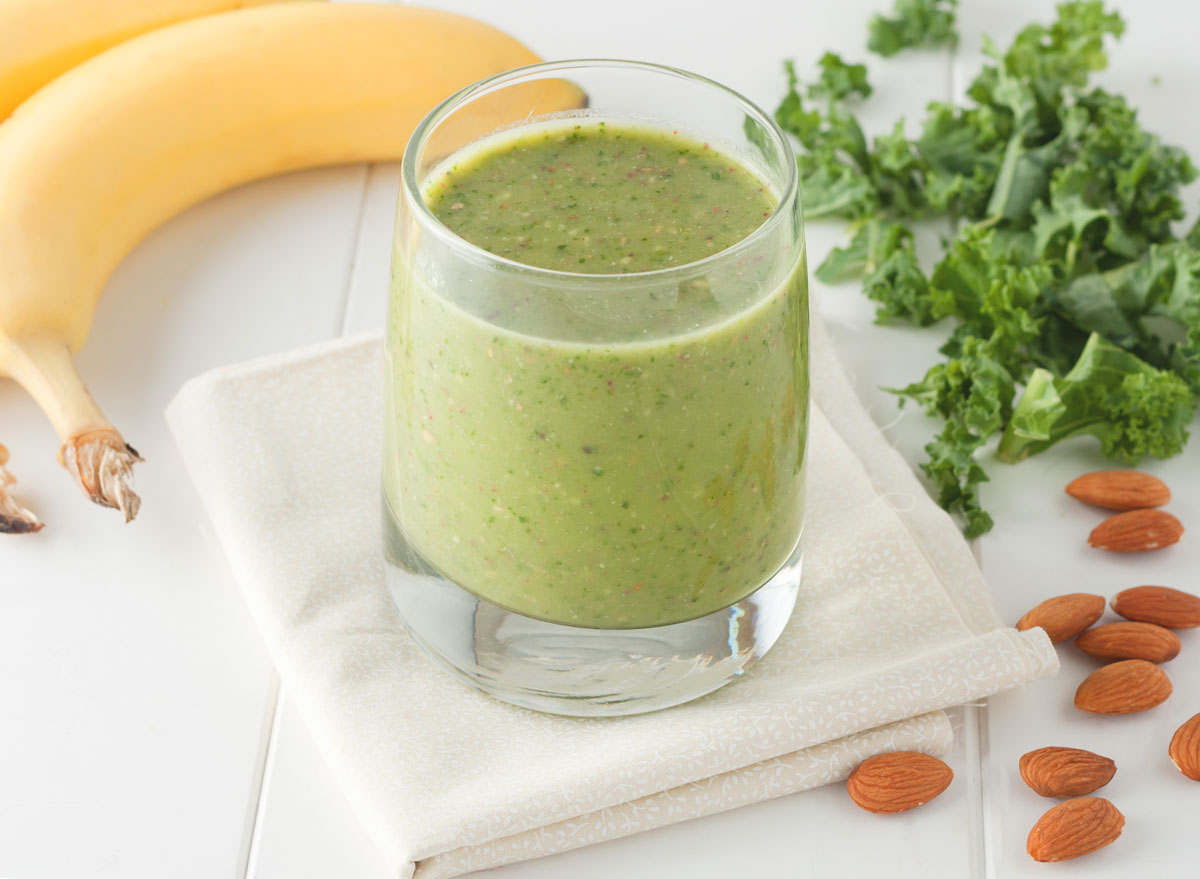
If you're a smoothie fan, it's time to start tossing in some extra protein-packed veggies. "I prefer steaming plants—like zucchini, squash, and cauliflower—and storing them in the freezer to easily grab and throw into a morning smoothie," Berghoff says. "You can't taste them and it makes the smoothie super creamy."
You can also add vegan protein powders to smoothies or even break up your favorite GoMacro protein bar to add some texture and protein to your fruit smoothie recipe.
Rethink your meals.
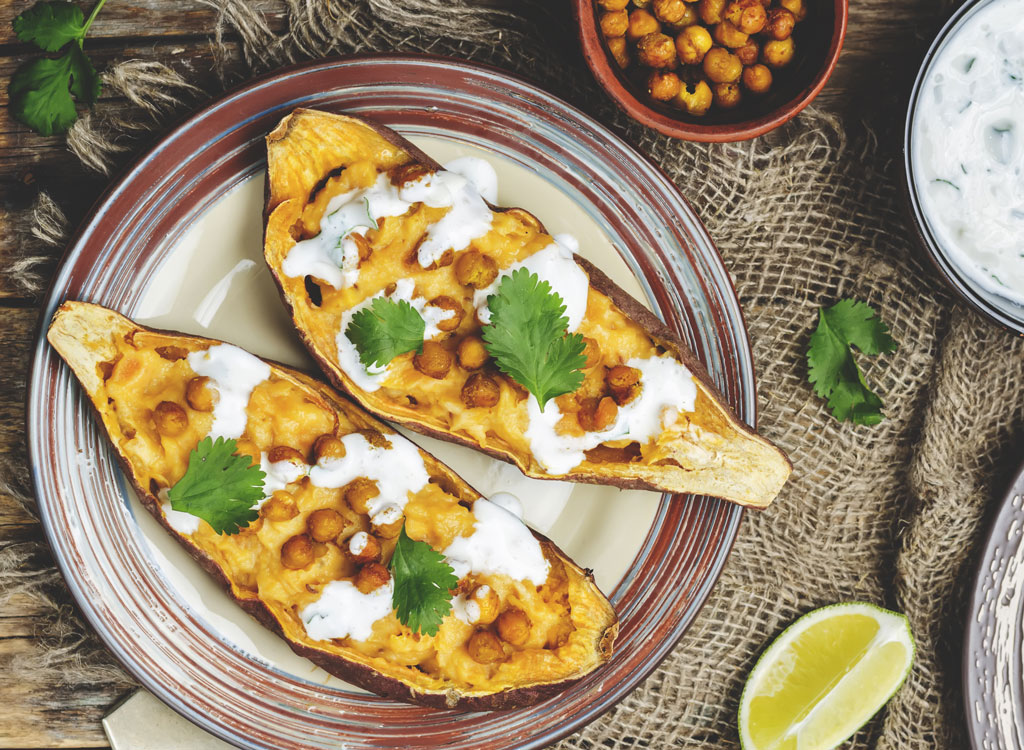
The next time you're making your favorite meals, think of which plant proteins could make them even more healthy and filling. If you're eating pasta, add in a cup of chickpeas. And if you're having a taco night, make sure black beans are in the line-up. When you get a little more creative, your meals will be even tastier and better for your health.
Roast 'em.
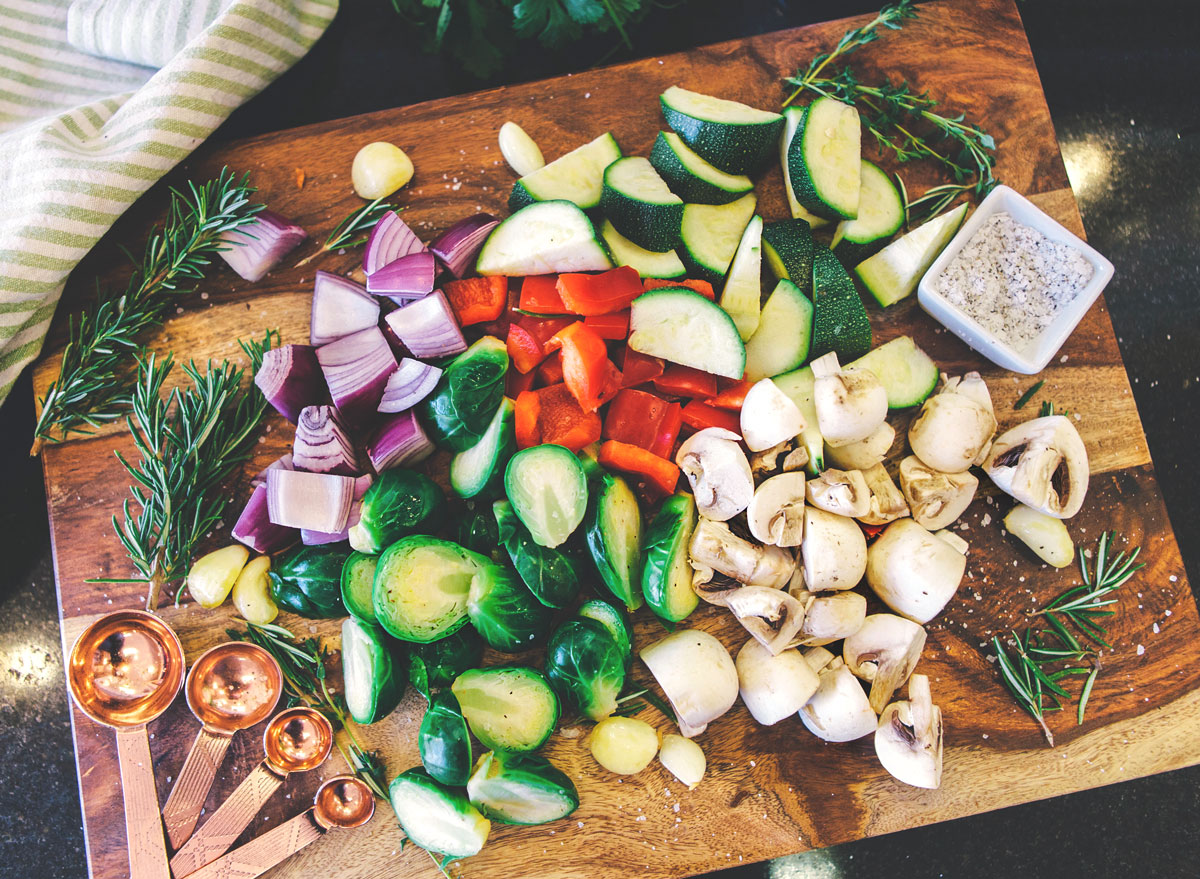
An easy way to make your plant protein more flavorful is to roast it up in the oven. "Roasting plants is a favorite of mine. It's so simple: Just chop up a variety of vegetables—like Brussels sprouts, bell peppers, asparagus, broccoli, cauliflower, onion, and squash—and put them on a baking sheet. After drizzling on some avocado oil, add some seasoning and bake them for about 30 minutes at 400 degrees," Berghoff says. If you make bigger batches, you can store your veggies in the fridge to enjoy throughout the week.
